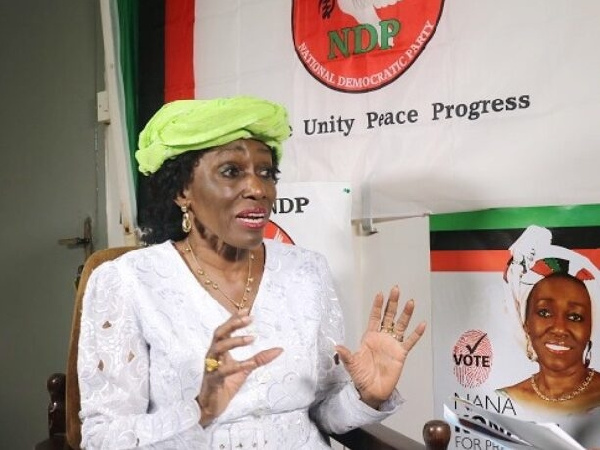The midday calm in Accra was pierced by heartbreaking news on Thursday, 23 October 2025. The death of former First Lady Nana Konadu Agyeman-Rawlings, a towering figure in Ghana’s political and social history, was confirmed.
According to multiple reports, she passed away at the Ridge Hospital at the age of 76.
For many Ghanaians, the news felt like the end of an era. Nana Konadu was not just the wife of the late former President Jerry John Rawlings; she was a movement in her own right.
A fearless advocate for women’s empowerment, a reformist who changed laws, and a trailblazer who dared to run for president when few believed a woman could, her death closes a life story built on conviction, courage, and a relentless belief that Ghanaian women deserved not just recognition, but power.
The woman who refused to be silent
To many, she was the First Lady who stood beside a revolutionary leader. But those who truly knew her work understood that she was every bit as revolutionary as her husband.
“My desire is to see the emancipation of women at every level of development. To enable them to contribute and benefit from the socio-economic and political progress of the country,” she once declared.
That conviction gave birth to one of Ghana’s most impactful social transformations, the 31st December Women’s Movement (DWM).
The 31st December Movement: A revolution within a revolution
In 1984, as Ghana emerged from years of political and economic turbulence, Nana Konadu founded the DWM, a bold grassroots organisation that placed women at the heart of national development.
Under her leadership, the movement grew to over two million members, building more than 870 preschools nationwide and providing women with access to literacy training, financial education, and small-scale economic empowerment programs.
“We had to start with things that would earn money to develop their communities. Most of the women wanted things like water,” she once said.
Her movement wasn’t about handouts; it was about dignity. She believed women should not wait for help, they should build their own strength.
Changing laws, changing lives
Nana Konadu’s advocacy extended beyond speeches and charity; she pushed for structural change.
She was instrumental in the passage of Ghana’s Intestate Succession Law (PNDCL 111), granting widows and female children the right to inherit property, a groundbreaking shift in Ghana’s legal landscape.
She also spearheaded Ghana’s early ratification of the UN Convention on the Rights of the Child in 1991, making the country the first in the world to do so.
Through policy, law, and activism, she redefined what women could achieve in Ghana’s democracy.
The political trailblazer
In 2011, Nana Konadu did what few dared; she challenged sitting President John Evans Atta Mills for the flagbearership of the National Democratic Congress (NDC).
Though unsuccessful, the move cemented her legacy as a political trailblazer and a woman unafraid to stand toe-to-toe with the establishment.
A year later, she formed the National Democratic Party (NDP), and in 2016, she became Ghana’s first female presidential candidate, carrying with her the dreams of countless women who had long felt invisible in the corridors of power.
A life rooted in purpose
Educated at Achimota School and KNUST, where she studied Textiles and Graphic Design, Nana Konadu was also an artist, a businesswoman, and a mother.
Her creative background shaped her worldview, seeing potential, beauty, and purpose even in struggle.
Before her public life, she worked with Union Trading Company, Ghana Tourist Board, and Nanali Africarts, where she promoted Ghanaian artistry and craftsmanship.
A nation mourns, but her legacy lives on
As the afternoon turned to evening, tributes began to flood in from political leaders, activists, and ordinary women across the country.
Many recalled how she changed their lives, not through politics, but through belief, the belief that women could rise, lead, and shape their destiny.
Her passing leaves behind a movement that will endure long after her voice fades: the voice that urged Ghana to see women not as dependents, but as drivers of progress.
Nana Konadu Agyeman-Rawlings, activist, reformer, mother, and pioneer, may be gone, but the ideals she stood for will never die.
She fought for women’s dignity, demanded equality, and made history in a world that wasn’t ready for her.
Today, Ghana bows its head in grief and gratitude.
FKA/MA
Kimathi Rawlings and other prominent figures depart residence after brief meeting
Scenes from Accra Ridge Hospital after news of Nana Konadu Agyeman-Rawlings’ death
The wait is over! The GhanaWeb Excellence Awards 2025 is officially launched. Let’s Celebrate impact, innovation and excellence across Ghana.
Who deserves to be honoured this year?
Nominate now 👉 https://ghanaweb.com/ghanaexcellenceawards/nominate
